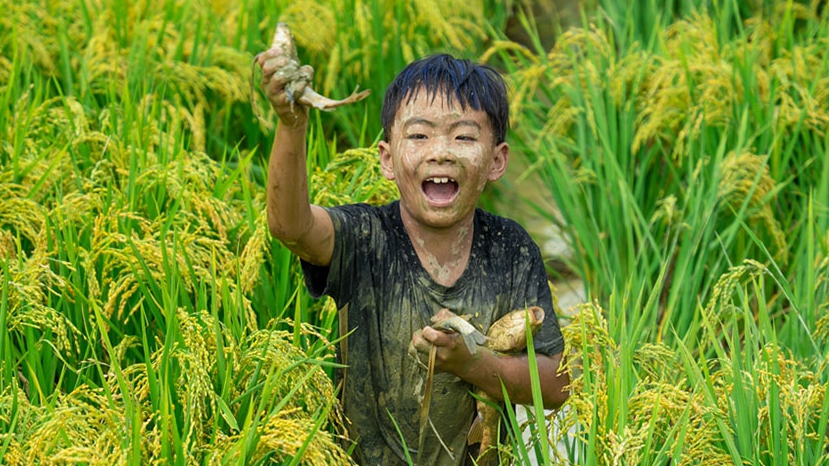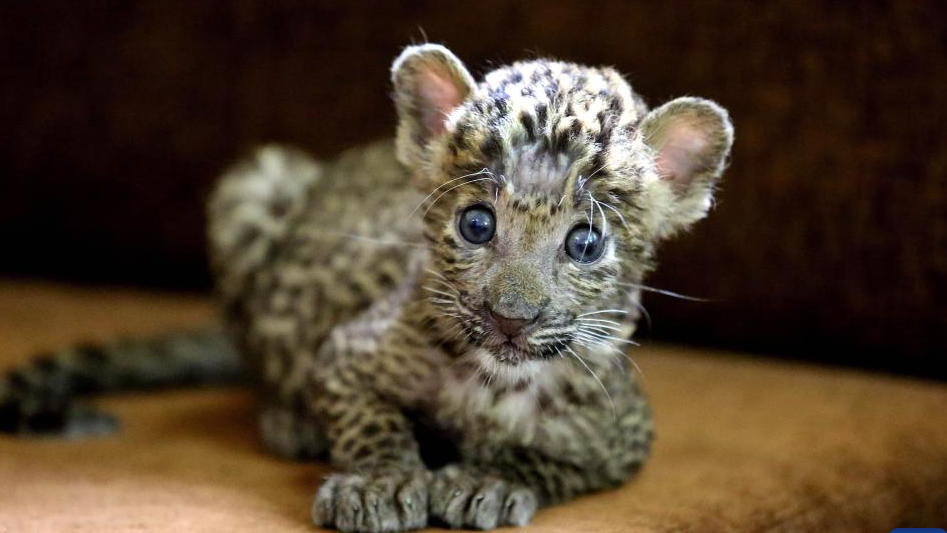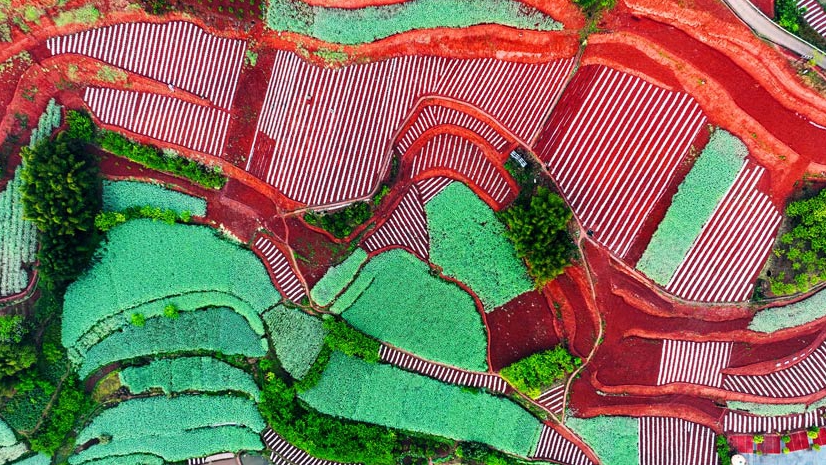Megacity Beijing pursues green, high-quality development
* Beijing's growth model, which was once resource-intensive, has been transformed in recent years to pursue development by shifting functions non-essential to its role as the Chinese capital.
* Over the past decade, Beijing has closed about 3,000 general manufacturing and polluting enterprises, and closed down or refurbished nearly 1,000 regional specialized markets and logistics centers to ease traffic congestion.
* Beijing has renovated a number of historical buildings and streets as well as vacated industrial sites in recent years, transforming them into various cultural spaces to boost the development of the city's cultural industry.
BEIJING, Sept. 14 (Xinhua) -- Beijing's growth model, which was once resource-intensive, has been transformed in recent years to pursue development by shifting functions non-essential to its role as the Chinese capital.
Solid steps, such as closing manufacturing and polluting enterprises, reducing urban-rural construction land, increasing green space, and controlling population size, have been taken to create a green, innovative and high-quality development path.
Thanks to the efforts, the capital city is currently seeing an improving natural environment, flourishing cultural activities, and booming technological innovation, which are in turn injecting vitality to the high-quality development of the city as well as the neighboring Tianjin Municipality and Hebei Province.
GREEN LUNG
The Wenyu River park located in northeast Beijing is a favorable destination for residents and tourists to spend their leisure time.

Photo taken on Sept. 1, 2020 shows the Wenyu River park in Beijing, capital of China. (Xinhua/Ju Huanzong)
Known as the largest "green lung" of the city, this river park was once marred by pollution. Previously, sand and gravel quarry sites and waste collection stations were located here. Construction of the park started in 2019 after the city decided to shut down polluters and carry out ecological restoration.
The park is just an epitome of Beijing's efforts to promote green development and build the capital city into a more livable metropolis.
Over the past decade, Beijing has closed about 3,000 general manufacturing and polluting enterprises, and closed down or refurbished nearly 1,000 regional specialized markets and logistics centers to ease traffic congestion.
The city has also launched two rounds of afforestation and greening projects, each covering 1 million mu (over 66,666 hectares), and added 9,000 hectares of urban green space. The city's forest coverage rate has increased from 38.6 percent to 44.6 percent.
This year, Beijing will add another 200 hectares of green space to the vacated areas as well as develop three forests and build 50 small-scale leisure parks and grasslands in urban areas.
"Beijing is one of my favorite cities all over the world. I am delighted to see more ecological parks built here, which will have a positive impact on building Beijing into a harmonious and livable city while improving the biodiversity," said Regis Calmels, a Frenchman who had ever lived in China for over two decades.
INNOVATION HIGHLAND
Adjei Eben Kwame, director of China Africa Ghana Chamber of Commerce and Industry, was greatly impressed during his visit to Shougang Park in Beijing, one of the exhibition venues of the 2022 China International Fair for Trade in Services, which concluded on Sept. 5.

A visitor takes pictures at the Shougang Park during the 2022 China International Fair for Trade in Services (CIFTIS) in Beijing, capital of China, Sept. 5, 2022. (Xinhua/Li Xin)
"This is my first visit to Shougang Park. It's surprising to see a steel plant transformed into a modern exhibition venue," he said.
Based on the facilities of a steel plant with a history of about 100 years, Shougang Park has been transformed into a comprehensive industrial service area integrating commerce, science and technology, sports, culture and tourism, and other industries. The steel plant was relocated to Hebei Province in 2010 as part of the city's efforts to cut air pollution.
"The sci-tech firms account for about 38 percent of the total number of enterprises in the park," said Wu Xin, deputy director of the industry development department of Beijing Shougang Construction Investment Co., Ltd.
"In the future, the park will promote its construction as a sci-fiction industrial agglomeration area and a metaverse innovation center, exploring a new path for the city's innovative development," Wu added.
Similar to Shougang Park, the core area of a national fintech demonstration zone has been built in a space formerly occupied by a wholesale market just opposite the Beijing Zoo. The market ceased operations in 2017 to make way for upgraded functions.
Currently, more than 150 major fintech companies and professional service institutions have settled in the demonstration zone, which has a total registered capital of 110 billion yuan (about 16 billion U.S. dollars).
"The fintech demonstration zone has provided a sound platform for such enterprises to enhance cooperation and promote technical innovation," said Jiang Xinwei, general manager of Hyundai Insurance (China) Co., Ltd.
LIVELY CULTURE
Beijing has renovated a number of historical buildings and streets as well as vacated industrial sites in recent years, transforming them into various cultural spaces to boost the development of the city's cultural industry.

A performance is staged in a theater named Yanliaohuiguan in Dongcheng District of Beijing, capital of China, July 19, 2022. (Xinhua/Chen Zhonghao)
At a theater named Yanliaohuiguan in Beijing's Dongcheng District, a cultural performance was staged during the Mid-Autumn Festival holiday, attracting a massive audience.
The venue is over 400 years old and was one of Beijing's earliest commercial guild halls. To make better use of the centuries-old building, authorities carried out restoration works on the theater and opened it to the public in 2021, with cultural performances held regularly.
"While preserving the original layout of the historical buildings, we strive to explore their cultural significance and refurbish them into spaces for cultural exchanges," said Wang Tiefeng, with the publicity department of Dongcheng District. "Rich cultural activities are making Beijing a more dynamic city."
Daniela Tassy, a Brazilian national who first came to China in 2014 to study the Chinese language, decided to settle down in Beijing due to her love for traditional Chinese culture.
"There are more places to listen to the traditional Peking Opera in Beijing," said Tassy. "I am a witness and beneficiary of the city's vigorous culture."
Photos
Related Stories
- Beijing find 13 new COVID-19 cases on campus as universities deal with infection from returned students
- A glimpse of service robots in Beijing
- WRC showcases latest robotic technology, products in Beijing
- In pics: Beijing sees better air quality in January-July period
- In pics: Scenery of Beijing
- Unforgettable moments of dual Olympic city
- China's national archives open in Beijing
- Children participate in summer camp program in Beijing
- Wanshou Temple ready to welcome visitors in Beijing
- Beijing Expo Park launches camping festival
Copyright © 2022 People's Daily Online. All Rights Reserved.









